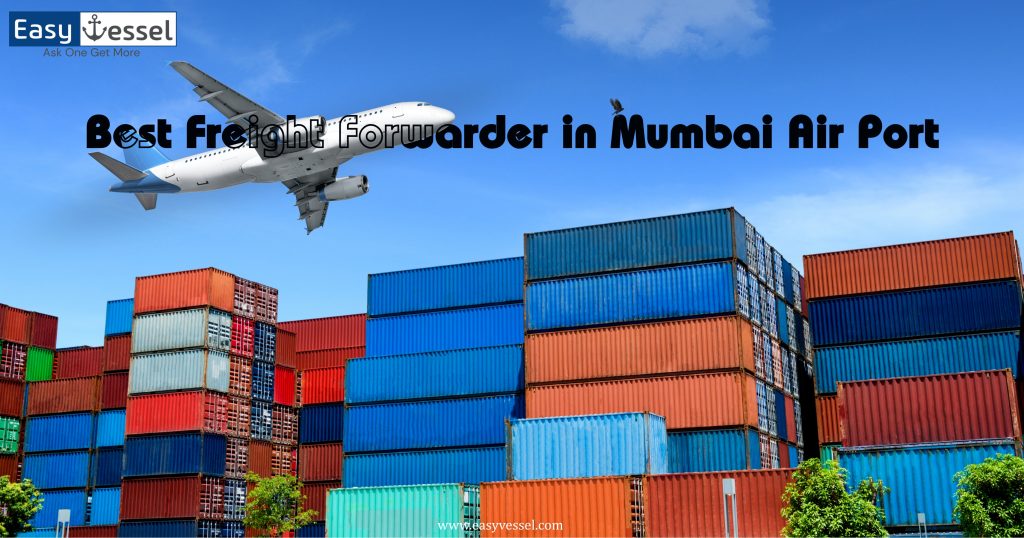- In the fast-paced world of logistics, expanding your freight forwarding business into new markets is essential for sustained growth and success.
- Expanding your freight forwarding business into new markets presents exciting opportunities for growth and increased revenue.
- However, navigating the complexities of market expansion demands a user-centric approach that prioritizes your customers’ needs and preferences.
- Expanding your freight forwarding business can be made easier with Easyvessel.
- Easyvessel offers streamlined solutions for managing your freight operations, making it the optimal choice for growth.
Understanding the Market Landscape:
- Before diving headfirst into expansion, it’s crucial to conduct thorough market research.
- Identify potential markets with high demand for freight forwarding services.
- Consider factors such as economic stability, trade regulations, infrastructure, and cultural nuances.
- Utilize market analysis tools, industry reports, and expert insights to make informed decisions.
Developing a Strategic Plan:
- Once you’ve pinpointed promising markets, craft a comprehensive strategic plan.
- Define clear objectives, timelines, and milestones for expansion.
- Assess your resources, including finances, manpower, and technology.
- Determine the most viable entry strategies, whether it’s establishing partnerships, opening new branches, or leveraging digital platforms.
Building Partnerships and Alliances:
- Collaboration is key to successful expansion.
- Forge strategic partnerships with local logistics firms, shipping companies, and customs brokers in the target market.
- These alliances provide invaluable insights, access to networks, and operational support.
- Establishing mutually beneficial relationships fosters trust and enhances your market presence.
Adapting to Cultural Differences:
- Cultural nuances play a significant role in business interactions.
- Take the time to understand the cultural norms, business practices, and communication styles prevalent in the new market.
- Respect local customs and traditions to build rapport with clients and partners.
- Embrace diversity within your team and cultivate a culturally sensitive approach to business.
Investing in Technology and Innovation:
- In today’s digital age, technology is a game-changer for logistics businesses.
- Invest in cutting-edge software solutions, automation tools, and digital platforms to streamline operations and enhance efficiency.
- Implementing advanced tracking systems, real-time analytics, and cloud-based platforms enables seamless communication and transparency across borders.
Ensuring Regulatory Compliance:
- Navigating regulatory frameworks is essential when expanding into new markets.
- Familiarize yourself with local laws, customs regulations, and trade policies governing freight forwarding activities.
- Stay updated on compliance requirements related to documentation, tariffs, and import/export regulations.
- Partner with experienced legal advisors and consultants to ensure adherence to regulatory standards.
Marketing and Branding Strategies:
- Effective marketing and branding are vital for establishing your presence in new markets.
- Develop tailored marketing campaigns that resonate with the target audience.
- Leverage digital marketing channels, social media platforms, and industry publications to raise awareness and generate leads.
- Moreover, employing targeted advertising strategies can enhance your reach and engagement with potential customers.
- Cultivate a strong brand identity that reflects your company’s values, reliability, and expertise.
Monitoring and Evaluation:
- Continuous monitoring and evaluation are essential to track the progress of your expansion efforts.
- Implement performance metrics, KPIs, and feedback mechanisms to assess the effectiveness of your strategies.
- Stay agile and responsive to market dynamics, while adjusting your approach as needed to optimize results.
- Regularly review your expansion plan, identifying areas for improvement and innovation.
What are some of the challenges that freight forwarders face when it comes to doing business?
- Freight forwarders encounter numerous challenges in their operations, including navigating complex regulatory compliance, managing fluctuating freight rates mitigating supply chain disruptions, adopting technological innovations, competing with larger players, and addressing talent shortages.
- These hurdles require strategic planning, as well as agile decision-making, and investment in technology and talent development to ensure competitiveness and sustainability in the dynamic global logistics landscape.
Freight Forwarding Business with Easyvessel:
- Expand your freight forwarding business seamlessly into new markets with Easyvessel.
- Our platform eliminates the hassle of finding clients by connecting you directly with multiple opportunities, all without charging any commission fees.
- Sign up now to access a wide network of potential clients and grow your business effortlessly.
- With Easyvessel, you can focus on what you do best while we handle the logistics of expansion.
- Join us today and take your business to new heights.
Conclusion:
In conclusion, By following these strategic guidelines, you can navigate the complexities of expansion with confidence and success. Embrace the opportunities presented by global markets, and watch your business reach new heights of growth and profitability with easyvessel.
Easyvessel is the way to connect importers and exporters with multiple freight forwarders to get the best and lowest freight rates with 0% commission.
Frequently Asked Questions
To expand your freight forwarding business, focus on strategic market research, forge partnerships with local logistics firms, invest in technology for efficiency, adapt to cultural shades, and implement effective marketing strategies.
Freight forwarders gain clients through networking, referrals, online platforms like easyvessel, and targeted marketing efforts. They build relationships with shippers, exporters, and importers by offering competitive rates, reliable service, and personalized solutions to meet their shipping needs.
Freight forwarding is the coordination and facilitation of the transportation of goods from one location to another, including handling documentation, customs clearance, and logistics management.



